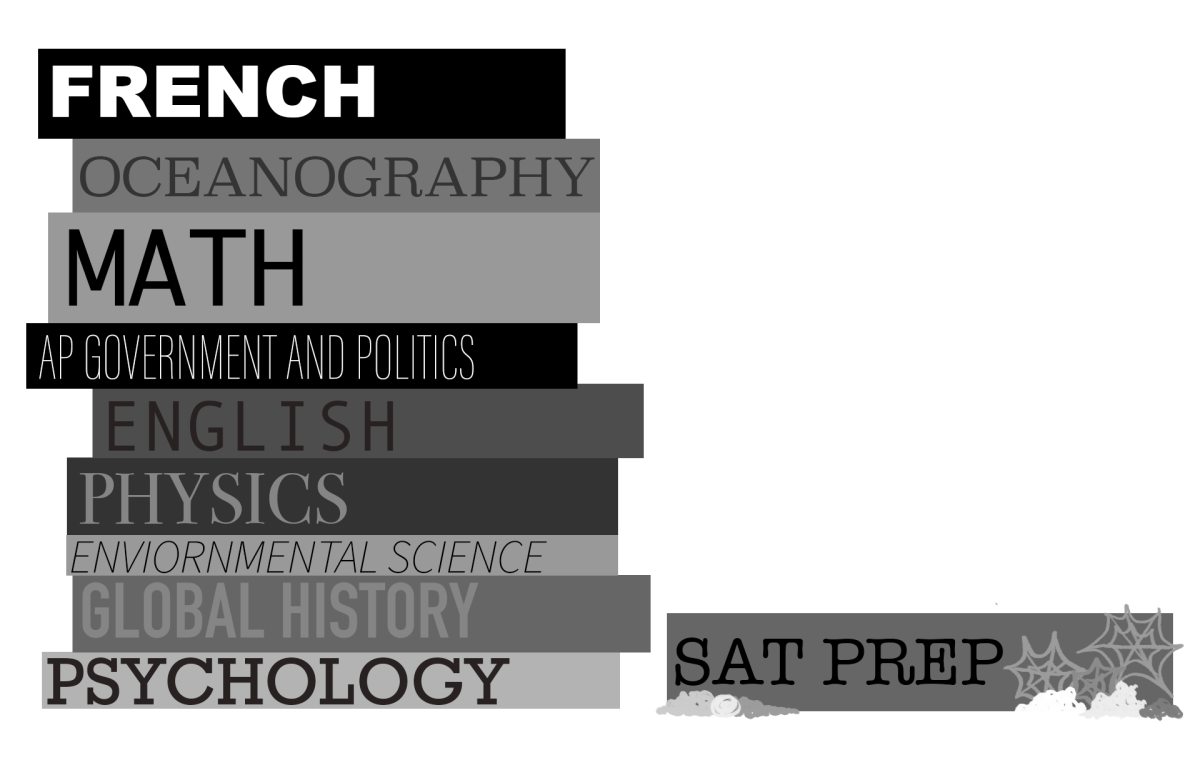Sports are a great way to improve fitness, social skills, and mental health. It’s no wonder a large amount of LM students are actively engaged in school sports. This, without a doubt, puts immense pressure on dozens of the student athletes at LM by creating a strong desire to succeed at all costs. Student athletes spend hours training, exhausting their body and mind, and many end up forgetting the true purpose for playing sports. Rather than playing for the sole purpose of competing, student athletes should also play simply for the joy of playing.
LM is known to house some of the best athletes on the Main Line, if not in the state, winning multiple awards and breaking several records. This places suffocating pressure on athletes who strive to play on the same level as their peers.
Sela Kostinsky ’24 has been a member of LM’s girls’ crew team for over two years. She describes her experience with the team as “a difficult environment to be around with everyone being competitive.” She went on to mention the crew team as a great program with “great rowers,” as there have been about four college commitments made within the team, in all divisions. While this is a great feat worthy of recognition, it is equally important to focus on how these students get there. Pediatric sports medicine physician Katharine Dahab, MD commented on athletic competitiveness being more cutthroat in society: “[There is] much more competitiveness than there used to be. We’re seeing kids playing one sport year-round, starting club sports a lot younger. It sometimes seems like society is pushing beyond ‘let’s play and have fun’… to let’s train, let’s get this scholarship, let’s win.” It’s all about drive and competition. Obviously, there is nothing wrong with wanting to win. Nothing beats the adrenaline rush of holding either a trophy or a medal after a long game. The problem lies within our frequent focus on perfection rather than on having a good time.
While overperfection can lead to great victories, it can also lead to great harm on both body and mind.
Colorado Children Hospital rehabilitation psychologist Tess Simpson, MD discussed the impacts of sports on an athlete’s mind: “I’m seeing more kids where their stress levels are meeting clinical thresholds for anxiety disorder. When the focus is on perfection and winning, kids miss out on learning to cope with mistakes and loss.” Kids get enough stress from school as it is, especially at LM. Sports should be a way to ease the mind, not rack up a bill on anxiety medication. There is also the issue of overuse injuries within athletes. Dr. Dahab mentioned seeing “more overuse injuries in younger and younger athletes.” Kostinsky mentions having both “emotional stress” and being “injured” after several practices. This is not uncommon considering the harsh oars crew athletes train with each day.
Because we lack a proper sports psychologist at LM, coaches should be trained in helping athletes overcome burnouts which lead to overuse injuries, and anxiety.
Coaches need to be recognized as more than trainers whose job revolves entirely on raising perfect athletes. While the urge to train strong athletes is understandable, coaches should be someone to turn to whenever an athlete faces emotional stress, and they should always be on the lookout for easily preventable injuries gained during practice. Kostinsky describes her experience with coaches as “not as supportive to her as she would like.” She mentioned appreciating coaches who are “willing to work hands-on with you.”
There’s no harm in deciding not to play competitively, and hopefully more students will start to realize this.
2023 LM alumnus Mark Lancaster shared his experience playing tennis. Lancaster was part of the boys’ varsity tennis team, which he describes as an “elite team,” winning two state titles and breaking a number of state records. He described much of his high school career as “playing tight due to pressure I was putting on myself to win.” He discussed the culture of “playing tight,” being in total control of the game, which didn’t let him appreciate tennis the way he wished. While describing playing tennis outside of LM as “an amazing feeling” and a way to relax, he was able to identify the impact playing competitively had on him: “I learned that once I recognized my self-inflicted pressure, I could more easily work around it.” Despite being a skilled player, he decided not to pursue NCAA tennis competitively while in college, which initially led to him feeling “disappointed.” He was able to recognize the mental sacrifice he gave playing competitively and took a greater sacrifice of not playing that way.
Students tend to gain more when they play for the fun of it, as opposed to playing just to win a prize.
Lancaster mentioned how his playing style has “become more aggressive” with him taking more risks on the court. This shows a simple key to the goal all coaches and athletes strive towards; athletes play better when they play for the fun of just playing. Lancaster further mentioned: “I don’t feel scared to lose anymore, because I don’t need to win the match in order to feel satisfied with how I played.” It does not have to be all about drive and competition. This realization not only helped improve his playing style but has also led him to becoming a captain on the Princeton Club Tennis Team and to participate internationally, competing on the U.S Korean-American National Tennis Team. This also unexpectedly led as a way for him to connect with his culture.
This proves that there is much more to gain when athletes disregard the pressure to play competitively, claiming the benefits that come along and play just because they want to.
There is a common idea that it is easier to train the body than the mind. This is not to say that athletes are academically lazy. Rather, most people find it easier to pursue benefits like scholarships and admissions through sports than through academics. There is about three billion dollars in Division 1 and Division 2 scholarships alone. That being said, only a mere two percent of high school athletes are able to attain full ride scholarships. Putting immense pressure on the competing eight million student athletes. While this pursuit is understandable, it is not justifiable considering the heavy toll it places on the mind and body of student-athletes. There are much more academic scholarships, and financial aid, available for students compared to athletic scholarships. Why risk anything when you can enjoy both options of gaining a scholarship while keeping your body and mind in check.
Sports are great for everyone, but it becomes a problem when we cultivate a culture of playing just to win. Play because you want to, not because you have to.




